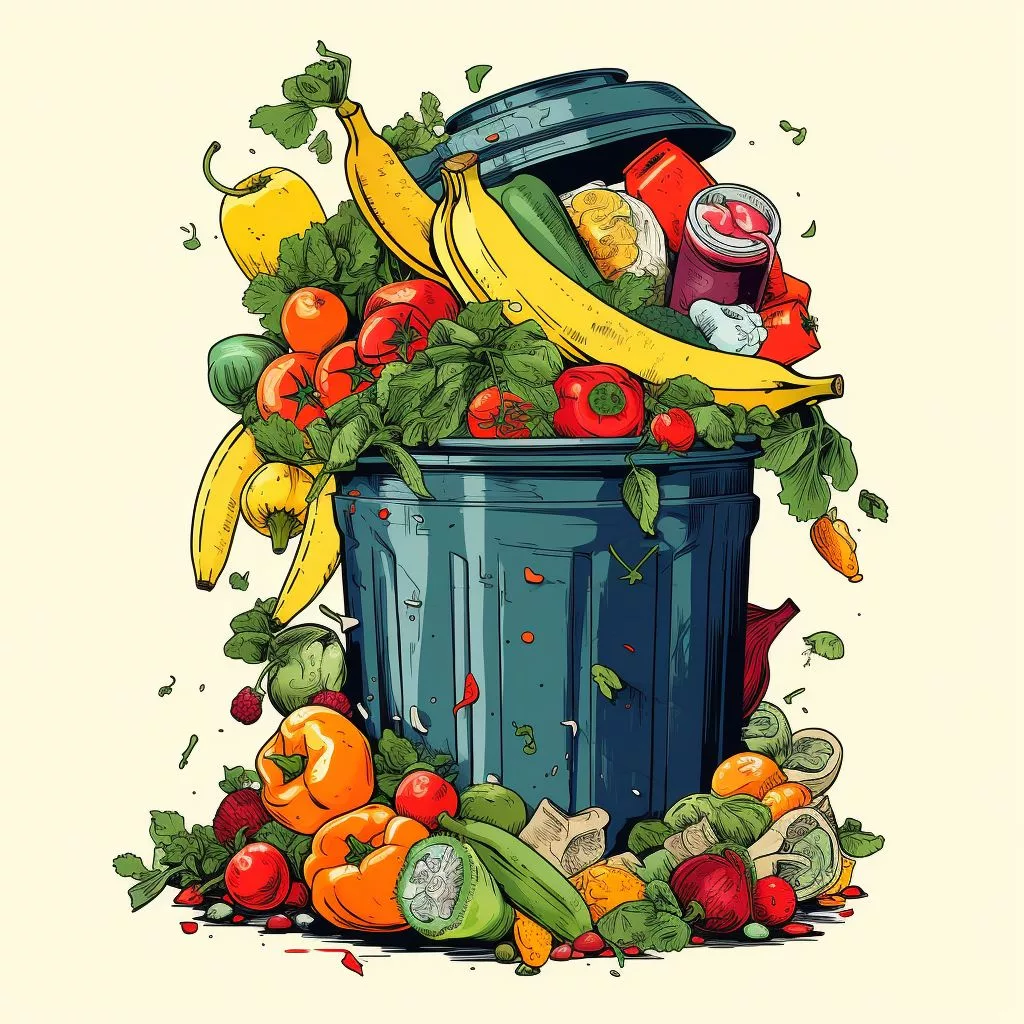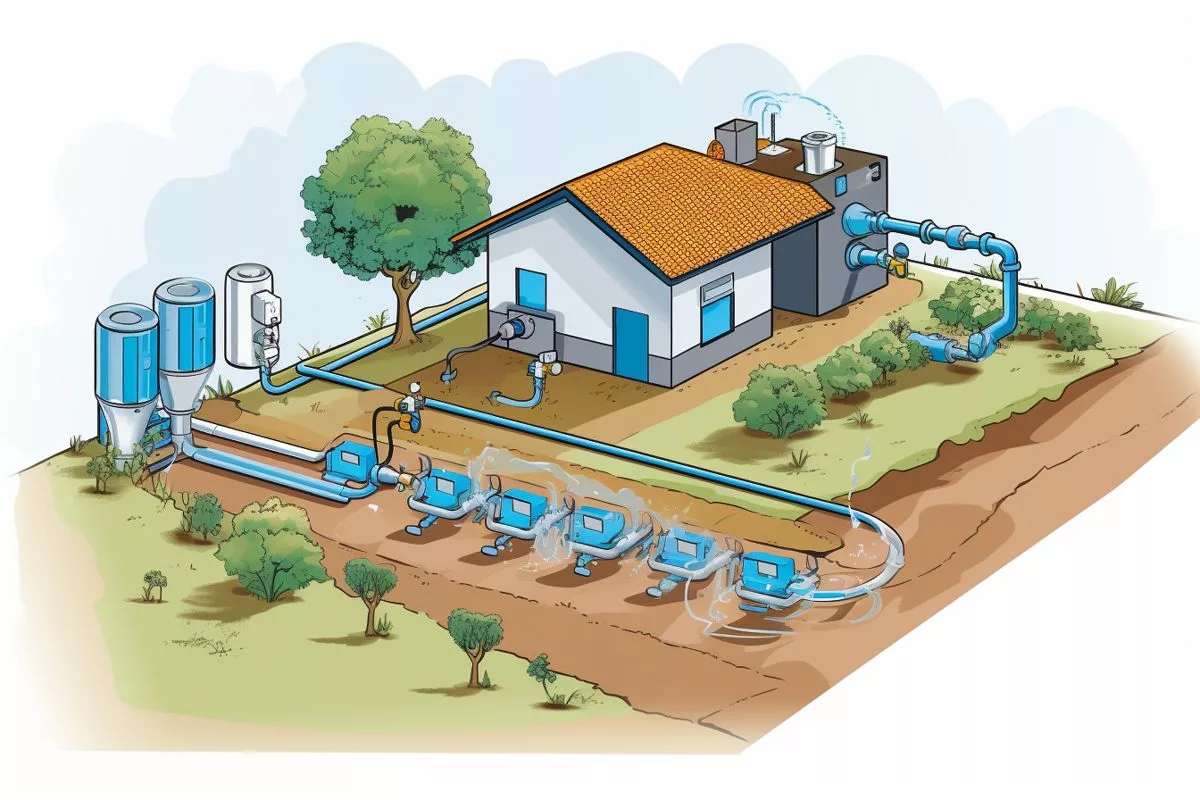Cape Town has introduced new regulations to reduce organic waste production by businesses, aiming for a 50% reduction by 2022 and 100% by 2027. The city is emphasizing the importance of minimizing organic waste, which generates methane, a potent greenhouse gas. Non-compliance with the waste management regulations can result in steep fines, with penalties ranging from R2,000 to R2,500. To facilitate compliance, the City of Cape Town is offering online waste management plan submissions.
What are Cape Town’s new organic waste regulations for businesses?
Cape Town has introduced new regulations for businesses to reduce their organic waste production, aiming for a 50% reduction by 2022 and 100% by 2027. The city is emphasizing the importance of minimizing organic waste, which decomposes in landfills and generates methane, a potent greenhouse gas. The penalties for non-compliance with the waste management regulations are steep, with fines ranging from R2,000 to R2,500. The City of Cape Town is raising awareness about the new regulations and facilitating compliance by offering online waste management plan submissions.
A Timely Initiative for a Sustainable Future
Cape Town, a city famed for its breathtaking landscapes and dynamic culture, is taking an essential step towards a sustainable future by introducing new organic waste regulations for businesses. The Urban Waste Management Directorate has recently issued a directive for businesses to curtail their organic waste production. With the enforcement of these regulations set to commence shortly, the city is embarking on another round of awareness and education to ensure that businesses are adequately prepared to adhere to the new rules.
Addressing the issue of organic waste is not merely an environmental concern but also a matter of public health and safety. Organic waste, such as food scraps, decomposes in landfills, generating methane – a potent greenhouse gas with a global warming potential 25 times higher than carbon dioxide. Minimizing organic waste can significantly reduce the emissions of this detrimental gas and contribute to the global efforts against climate change.
As per the City’s Integrated Waste Management (IWM) By-law, businesses should have already devised an integrated waste management plan (IWMP) outlining their strategies to minimize waste generation. The new Provincial directive mandates businesses to update their plans and specify how they will promptly reduce their organic waste by 50%, aiming for a 100% reduction by 2027.
Raising Awareness and Ensuring Compliance
The City of Cape Town has made substantial progress in raising awareness about the new regulations. The most recent efforts reached 128 businesses, including malls, hotels, and other high organic waste-producing facilities. These businesses, situated in areas such as Cape Town CBD, Sea Point, Green Point, Camps Bay, Muizenberg, and Simon’s Town, were provided with information packs containing the necessary guidelines for developing an updated IWMP.
In the upcoming months, the City will persist in its awareness and education initiatives, mainly focusing on the food processing industry. After November 30, 2023, the City will start issuing non-compliance notices to businesses that have not responded to these efforts. To avoid penalties, businesses must comply with the regulations by the deadline stated in the notice.
The penalties for non-adherence to the waste management regulations are steep, with fines of R2,000 for failing to submit an IWMP, R2,500 for failing to separate waste with the intention of minimizing waste, and another R2,500 for non-compliance with a notice and directions given by waste management officers or authorized officials. In certain situations, businesses could face more than one fine.
The Path Towards a Greener Future
Alderman Grant Twigg, Mayoral Committee Member for Urban Waste Management, emphasizes the significance of these regulations in addressing climate change and ensuring a sustainable future for the city: “In Cape Town, we have already felt the effects of climate change with the drought and, as a society, we need to be more conscious of how we manage organic waste and how businesses and our lifestyle can influence this.”
Twigg acknowledges that implementing new processes may be challenging for businesses with limited capacity or resources. However, he asserts that the enforcement of these regulations is crucial for the well-being of future generations and the preservation of the environment.
To facilitate compliance with the new regulations, the City of Cape Town has made it simple for businesses to submit their waste management plans online through the solid waste accreditation site. The necessary application forms are available on the City’s website, and written requests can be sent to the designated email address.
Cape Town’s innovative approach to addressing organic waste underscores the city’s dedication to environmental sustainability and the well-being of its residents. By implementing these new regulations, Cape Town is laying the groundwork for other cities worldwide to follow suit, promoting a greener and healthier future for all.
1. What are Cape Town’s new organic waste regulations for businesses?
Cape Town has introduced new regulations for businesses to reduce their organic waste production, aiming for a 50% reduction by 2022 and 100% by 2027. The city is emphasizing the importance of minimizing organic waste, which decomposes in landfills and generates methane, a potent greenhouse gas. The penalties for non-compliance with the waste management regulations are steep, with fines ranging from R2,000 to R2,500. The City of Cape Town is raising awareness about the new regulations and facilitating compliance by offering online waste management plan submissions.
2. Why is Cape Town introducing new organic waste regulations for businesses?
Cape Town is introducing new organic waste regulations to reduce greenhouse gas emissions caused by decomposing organic waste in landfills. The city aims to reduce organic waste production by businesses by 50% by 2022 and 100% by 2027.
3. What happens if businesses do not comply with the new regulations?
Non-compliance with the new regulations can result in steep fines, with penalties ranging from R2,000 to R2,500. The City of Cape Town is raising awareness about the new regulations and facilitating compliance by offering online waste management plan submissions.
4. What is the deadline for businesses to comply with the new regulations?
Businesses must comply with the new regulations by the deadline stated in the non-compliance notice issued by the City of Cape Town.
5. What is the Integrated Waste Management (IWM) By-law?
The Integrated Waste Management (IWM) By-law requires businesses to devise an integrated waste management plan (IWMP) outlining their strategies to minimize waste generation.
6. How is the City of Cape Town raising awareness about the new regulations?
The City of Cape Town has made substantial progress in raising awareness about the new regulations. The most recent efforts reached 128 businesses, including malls, hotels, and other high organic waste-producing facilities. These businesses were provided with information packs containing the necessary guidelines for developing an updated IWMP.
7. How can businesses comply with the new regulations?
To facilitate compliance with the new regulations, the City of Cape Town has made it simple for businesses to submit their waste management plans online through the solid waste accreditation site. The necessary application forms are available on the City’s website, and written requests can be sent to the designated email address.
8. Why is addressing organic waste important?
Addressing organic waste is not merely an environmental concern but also a matter of public health and safety. Organic waste, such as food scraps, decomposes in landfills, generating methane – a potent greenhouse gas with a global warming potential 25 times higher than carbon dioxide. Minimizing organic waste can significantly reduce the emissions of this detrimental gas and contribute to the global efforts against climate change.








